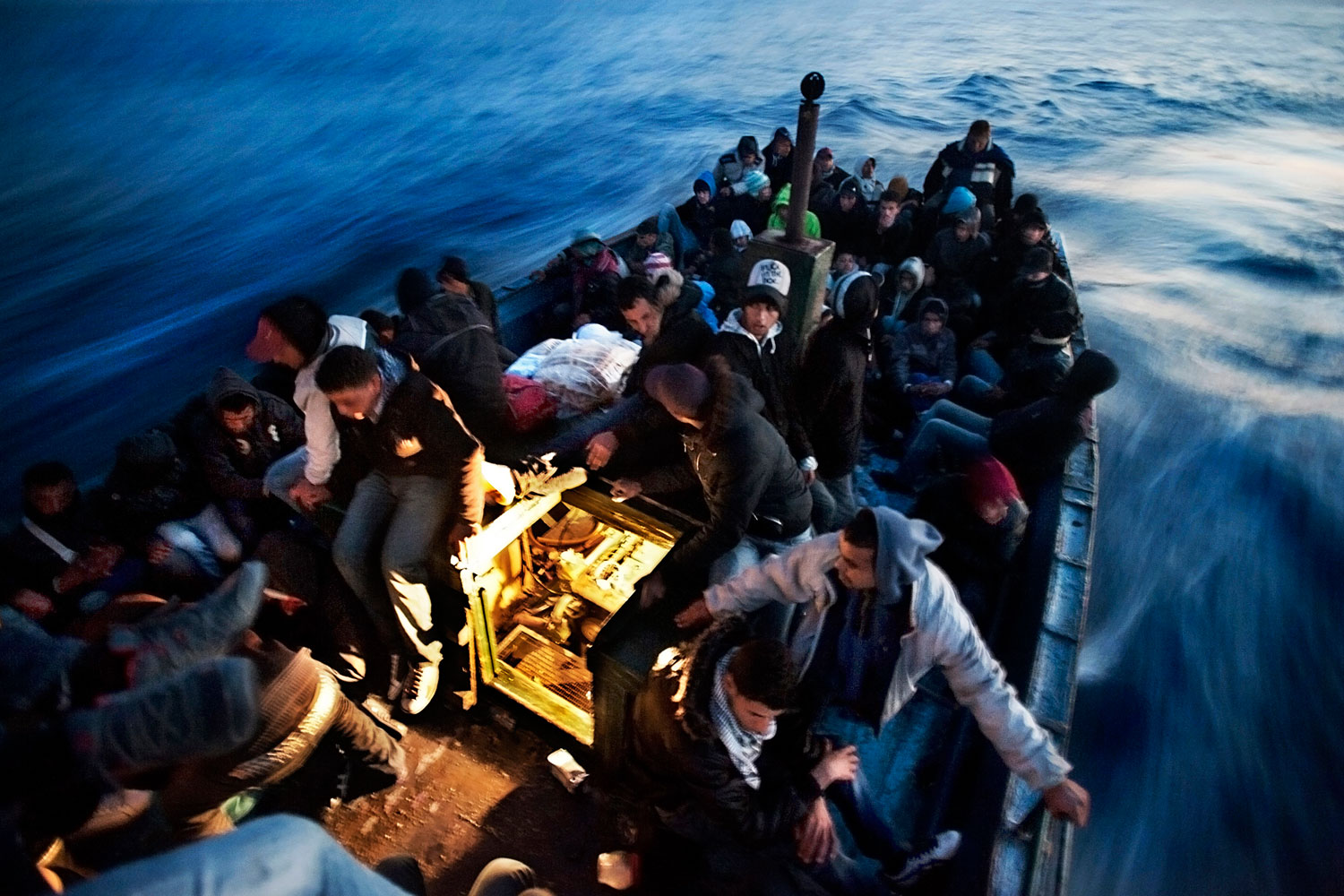
The Magnum Foundation Emergency Fund today announces, exclusively through LightBox, the winners of its 2013 grants. The fund, which began in 2009, awards annual grants to photographers from around the world to support anticipatory work that sheds light on under-reported issues and communities.
This year’s winners are:
Adam Nadel for Getting the Water Right
Alex Welsh for Home of the Brave
Giulio Piscitelli for From There to Here
Jehad Nga for Unmasking the Unthinkable
Mari Bastashevski for State Business
Olga Kravets for Radicalization
Rafal Milach for The Winners
Tanya Habjouqa for Occupied Pleasures
Philippe Dudouit for The Dynamics of Dust
Tomoko Kikuchi for The River
These 10 grantees were selected from a field of nearly 100 photographers nominated by fifteen international photography professionals, including photo editors, publishers, curators and educators. Along with funding, the winners will receive editorial guidance and research and distribution support to continue their work tackling issues of local, national and global concern.
The Emergency Fund, which was founded in response to the shrinking opportunities within established media for long-form, in-depth, socially conscious storytelling, is now in its fourth year of grant-making. Its mission is to enable a new generation of independent photographers to sustain themselves in the field long enough to witness and to fully document under-reported stories around the globe. Previous EF grants have supported and guided anticipatory work by Cedric Gerbehaye in South Sudan during the run-up to independence; work on young women and AIDS in Swaziland by Krisanne Johnson (Johnson’s accumulated work later received the prestigious W. Eugene Smith Grant); and essays by regional photographers, including Saiful Huq Omi’s project, The Disowned and the Denied, which focuses on the plight of Burmese refugees, the Rohingya.
The proposals from this year’s grantees — a third of whom are regional photographers — cover an equally wide geographical range and focus on notably diverse subject matter. They include the consequences of economic, political and environmental impact on one of the world’s most unique ecosystems, and a portrait of youth living amidst crime and violence; in Europe, the flow of immigration in the aftermath of the Arab Spring; in Libya, an investigation into war atrocities; and an intimate look at an alternative aspect of Palestinian daily life in the West Bank.
The Emergency Fund’s grant traditionally either launches a project’s “next chapter” or helps further and deepen the exploration of an emerging idea.
The EF has developed an incremental model for continued support — initially providing funding for one leg of a photographer’s journey, through the annual grant award, and then through Kickstarter supporting a further stage or completion of the work. Whether the result is the realization of a photographer’s first book or a residency at Duke University’s Center for International Studies, the EF’s strategy is to expand visibility for the projects it supports and to help photographers bring attention to critical issues.
The EF has also helped photographer grantees return to the communities where their projects first germinated — a holistic approach evidenced in, for example, 2011 grantee Emily Schiffer’s Securing Food in Chicagoland. Schiffer’s model draws together other photographers’ work and forms partnerships with local organizations in order to accelerate positive changes in the community.
The Foundation not only funds photographers’ work, but offers other forms of support, as well. For young photographers who haven’t yet worked extensively with editors, this extends to teaching them to make their work more effective by providing an understanding of narrative structure and how to contextualize their stories with text and other points of view.
In the end, the EF intends that the work it supports is disseminated and seen — both within and, as importantly, outside of the photographic community.
“We want to look at the world and to ask, What don’t we know about?” says Magnum Foundation President Susan Meiselas. “What don’t we see enough of? How do we expose issues to the public that are over the horizon, anticipating places that we may come to read the headlines about in the near future? The EF has a deep commitment to the documentation of these under-reported issues — to cover them sooner rather than waiting for the crisis to brew and become urgent.”
See more of LightBox’s coverage of the Magnum Foundation’s Emergency Fund.
More Must-Reads from TIME
- Why Trump’s Message Worked on Latino Men
- What Trump’s Win Could Mean for Housing
- The 100 Must-Read Books of 2024
- Sleep Doctors Share the 1 Tip That’s Changed Their Lives
- Column: Let’s Bring Back Romance
- What It’s Like to Have Long COVID As a Kid
- FX’s Say Nothing Is the Must-Watch Political Thriller of 2024
- Merle Bombardieri Is Helping People Make the Baby Decision
Contact us at letters@time.com